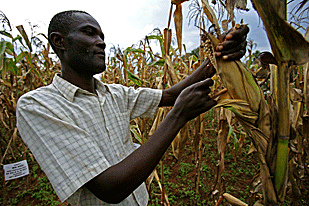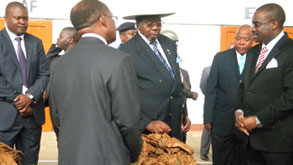Malawi government on Tuesday kick-started the 2012 farm-input subsidy programme aimed at helping poor subsistence farmers
achieve food security. Launching the programme in the capital, Lilongwe, deputy Agriculture Minister Ulemu Chilapombwa said government planned that by the end of October all of the country’s 28 districts would have received the farm inputs. ”Even if rains start towards the end of this month we would have fertiliser ready,” he said.
The programme started during the Bakili Muluzi administration as ‘starter packs’ where farmers would receive small packs of seed and fertiliser. The late President Bingu wa Mutharika perfected it by significantly reducing the price of fertiliser to sell it to targeted farmers who are issued with coupons. The current price of a 50 kilogramme bag of fertiliser is 500 Malawi Kwacha (less than US $2).
Analysts, however, say the programme is very expensive and unsustainable for a poor country like Malawi. They argue that it would be sustainable if government simply fed families that would have not harvested enough because despite the programme millions of Malawians still go hungry.
The programme is also dogged by corruption as politically-connected scramble for the lucrative tenders to supply the inputs. Corruption also permeates the registration process with chiefs either inflating numbers of beneficiaries or registering relatives and friends.
The farm input subsidy programme nonetheless made the late President Bingu wa Mutharika very popular. For the years after he took power in 2004 Malawi recorded surpluses in the production of the staple crop, maize.
Chilapombwa, the deputy Agriculture Minister, said there are 1, 140 selling points throughout the country for the programme.




